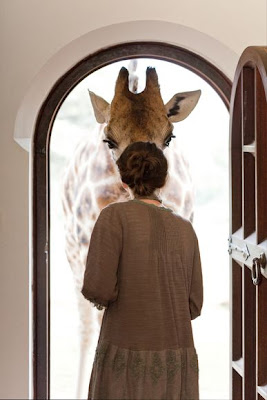
Good morning, Bloggers.
I would like you to research something very relevant to each of you - your name. You might already know a lot about why your parents chose your name, any history behind it, etc. - and you might be drawing a complete blank.
I would like you to do some research about your name and write a post telling us what you learned. As well, you are going to learn to create a hyperlink for this post (All you need to do is highlight the word or words you would like to hyperlink, then click on the little hyperlink icon on the top of your posting menu bar. Enter the web address of the site you would like to link to (include http://) (you can copy and paste for this). Once you publish your post, check to see that the link is working).
First, go to the website,
Behind the Name. Open it in a new tab in your browser so you can still have my blog and your blog open. Search for your name. You can type in your name to the search bar or search alphabetically.
Another site that has lots of interesting information about names is
Baby Names. Once you have found your name, you can click on "more info" and see a chart demonstrating how popular your name has been in different years. At the bottom of the "more info" page, you can fill out a survey about your name to help the administrators of the website enhance their information. You may do this when you are done writing your post.
Tip: Search your full first name, not a shortened part. For example, if you are Isabella, but everyone calls you "Bella", search "Isabella" to get the most information.
Find out the meaning or the root of your name.
Start a new post. In this post, you will answer several questions in full sentences. You may need to copy my text and fill in the blanks.
Start off your post by linking back to this assignment.
Behind My Name: ________ (fill in your name)
Before I started this assignment, I thought my name was ______, because _________.
I think my parents chose this name for me because __________________________.
After searching on Behind the Name (create a link here), I learned that my name means ____________ (use your own words here).
Some other interesting things I learned are _______________________ (maybe there was extra information, you learned the root of your name or where it comes from or who are some famous people with the same name, maybe you looked up your middle or last name).
I think my name does/does not (select one) suit me because ___________________.
If I could give myself a new name, it would be ______________, because _________________.
You may add any extra comments or reflections about your name at the end of the post.
For a bonus, look up the name of a character in a book, movie or TV show that you like and write about why that name does/does not suit that character's personality.
For a sample of how you can do a great job on this assignment, check out mine below.
Behind My Name: Lindsay
Before I started this assignment, I thought my name was original because I never had another Lindsay in my class while I was in grade school. I like the way it sounds and I'm glad that my parents chose to spell it with an 'a' instead of an 'e', ex. Lindsey. I also like my name a lot because it doesn't rhyme with much, so when I was little it was hard for other kids to make fun of my name. They usually got stumped, gave up and moved onto someone with an easier name to manipulate. When you're a kid, this matters.
I think my parents chose this name for me because my dad liked the bionic woman at the time, whose name was Lindsay Wagner. There was also a sportscaster who was named Lindsay as well that my father enjoyed.
After searching on Behind the Name , I learned that my name was originally an English and Scottish surname which was originally derived from a place name in Lincolnshire meaning "island of Lincoln" in Old English. Lindsay was originally given as a name for boys until the 1970s, when it became popular for girls, probably because of the American actress Lindsay Wagner (it worked for my parents). When I checked out other baby names sites the meaning behind the name Lindsay is uncertain, but it is often referred to as 'dark lake'.
Some other interesting things I learned is that it is mainly used for girls in North America. However in Scotland, Australia, and the American Northeast it is typically used for boys. Some famous Lindsays include the tennis player Lindsay Davenport and actress Lindsay Lohan (who I'm not really excited that we share the same name, she is a bit of a train wreck).
The year that I was born it was the 88th most popular name for baby girls (1979, yes – I was alive in the 70's). In 2009, it is the 524th most popular name for girls. I wonder if it will become more popular again?
.
I think that my name does suit me, I couldn't imagine answering to any other name. I feel like it is a strong, confident name, but still feminine and I like the way it sounds when people say it.
If I could give myself a new name, it would be Anna or Lauren because I think that they are beautiful names for girls. Who knows, if I ever have a daughter, maybe I'll use one of them for her?!
Please leave a comment at the bottom of this post when you have completed this assignment. Make sure you are logged in so I can easily access your blog.








